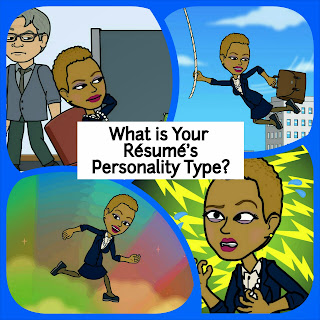The idea for this conversation
started with this CBS
News article I came across where a writer advised women not report sexual
harassment. I used this opportunity to bring in an HR professional into the mix.
I had the pleasure of chatting with Zena Thomas, a certified HR professional
and creator of HerSavvyCareer.com. We had a candid conversation about how today’s
culture affects how sexual harassment may manifest itself in the workplace,
even in subtle ways, and what to do about it.
Cathy: What is Sexual harassment?
Zena: Sexual
harassment is something that is an unwanted sexual act or an aggressive offense
towards a person. In order for it to be technically defined as sexual harassment it
has to be consistent and egregious. So you could have an
incident that is considered inappropriate, unless it’s unwanted and continuous
then it would not be consider sexual harassment. For example, someone putting
up a picture of a woman in her bathing suit up in their cubical where everyone can see, that would be offensive and under most corporate
workplaces it would be inappropriate, but that wouldn't be consider sexual
harassment; versus, someone such as a boss who continuously makes inappropriate
sexual remarks to one of their employees, if it’s unwanted. For it to be
unwanted [the offender] has to know that it is unwanted.
Cathy: What should
an employee do in the first incident of sexual harassment?
Zena: At the first incident they should acknowledge the incident by
telling the offender. This can fall under any time type of harassment, if
you're being offended you should let that person know and I say it's easier
said than done, so I usually tell people to say, "Hey, that offended
me" or "Hey, that made me uncomfortable" or "That didn't
feel right," to let that person know that it's something that did not feel
good to you. And then after that, if
you're comfortable, then yes you should go to your manager first, unless it’s
your manager [that's the offender], then you can go to HR. But if somebody
makes a joke about a woman having big breast that's not something you would go to
HR about necessarily, unless it's something that's been repeated and you've
told that person to stop. I would agree with the article that you mentioned to
say that you would not go to HR for every little sexual offense that may happen
in the workplace, because you probably would be at HR a lot. But, if you have
someone that continues to harass you in a sexual matter, then the first thing
that you should do is to let them know that you want them to stop, that you're
not comfortable with it, you won't tolerate it and that you're offended. And
then if they continue to proceed with the inappropriate behavior, then you
should let your manager know and/or HR.
Cathy: I'd like to
go back a little to what you said, so if you let the person know at the first
instance that he or she made you uncomfortable, then go to your manager?
Or, if you're okay with that should you leave the situation as is once
you've let offender know?
Zena: I think it is okay to leave it as is, but it's up to you.
Everyone has a different level of sensitivity. As a seasoned professional with
many years in a corporate environment I'm less offended than most people are,
but I would say that if you're uncomfortable with letting the offender know,
then of course let someone else know. But you are your first defense. A lot of
times people don't know that they've offended you unless you tell them. I would
not say that with every offense or inappropriate thing you should pull
management in on. I do think that as an employee, professional, and a team
member you owe it to the person to tell them that they made you feel
uncomfortable, even if it is your boss which may be a little bit more
difficult. I think the person will respect you more if you tell them first how
the action made you feel. In the long run it will help you in the work
environment if you're the first person to communicate how you feel to the
offender.
Cathy: People may
feel uncomfortable about approaching their manager about any grievances that
they may have and may be a bit hesitant about approaching a manager regarding
workplace issues. What would you advise if someone was sexually harassed
specifically by a superior?
Zena: If it is your superior, then you should go to HR right away. In
any work environment that I worked in and with my management style, we just
don't say that we have zero tolerance, we mean it. Your manager should be
working with you to help you achieve success in the workplace and if they are
harassing you or offending you, then that's not happening. If you’re in a
situation that makes you feel uncomfortable with confronting the person, then
definitely go to HR so that they can help you get the issue resolved. I like to
encourage people to try to find the strength at least once to tell the person
that they offended them, even if it is your manager. But if you can't,
definitely bring it to HR.
Cathy: How do you
feel about calling the anonymous hotline that some companies have for
their employees as opposed to revealing yourself by going directly to Human
Resources.
Zena: I've worked for one of the Fortune 50 companies and have
experience with that. It's a tool there for you to use so definitely take
advantage of it. The one thing that you must know is that it’s not totally
anonymous. If it's something like harassment, then it's something that is going
to be investigated. And I always tell people this and I am sure other HR
professionals would agree. If you bring something to me then I have to try to
resolve it. You can't tell me that you've been sexually harassed and not tell
me who sexually harassed you. If you are coming to me I am assuming that you
would like to resolve the problem and that's what I am there to do. So I highly
encourage people as a method for reporting to use those tools, but for
something like sexual harassment which may be different from whistle blowing,
reporting thief, or other inappropriate conduct at work, there will more than
likely be an investigation.
Cathy: As an
experienced HR professional, can you tell me an incident where somebody did
something that seemed harmless, but was taken as sexual harassment?
Zena: Yes, I worked a company with a very young workforce where most
people were in their twenties. It was very collegiate atmosphere with young
leaders. There was an incident where one of the team members (who actually sat
beside the young lady) had received an email that showed a very voluptuous
woman and they referred her body shape in an inappropriate way in reference to
the only female coworker on the team. She saw the email and she was in
tears; very offended and embarrassed. She didn't go to HR, however she told
somebody else and it got to HR and at that point we had to take action. We
found that the email was forwarded on and that even her manager was part of the
email chain. To be honest with you, I can't say that most people would have
considered it as being sexual harassment. If it was Kim Kardashian and they
said she looked like her, it may not have been as offensive. But it was
offensive and inappropriate and we did consider it sexual harassment,
especially if there was leadership involved. As a leader, our expectation is
that if they saw that they would bring the hammer down and say, "This is
inappropriate," and take action. That's a case that may seem innocent,
maybe, but is offensive. It was an indication of the culture because there were
6-7 people who saw the email who did not think it was offensive.
Cathy: You brought
a good point about how culture plays a big part on what may be considered
sexually harassment.
Zena: Absolutely! Sexual harassment is sexual harassment, but in terms
of how it manifests in the workplace I think it varies from job to job,
industry to industry, and culture to culture. And that's why it's very
important that if you are offended to let it be known. As you become more
mature in your professional career, it's important that you have the ability to
communicate when you're uncomfortable or offended. I want to acknowledge that
it's not always easy, but when you do you're setting yourself up for success in
terms of how people treat and respect you. Be really honest and forthcoming
about how you want to treated as a professional and how you want to be
perceived. It is so easy to turn a blind eye and work in a workforce
where sexual harassment is running so rampant that when something does happen
and someone takes a stand it becomes a shock to the culture of the workplace.
It’s important for both men and woman to take a stand when there is something
inappropriate and doesn't look or feel right. Whether it's when you say
something inappropriate and a person says, "I am offended" you just say,
"I'm sorry I offended you. I didn't realize that hurt you. I now know that
was inappropriate and I won't do it again." We are no longer is the days
where the boss is slapping somebody in the bottom asking them to go fix some
coffee. Today sexual harassment may manifest itself in little comments that may
come up in everyday conversation, but are inappropriate for the workplace.
 |
| Zena Thomas, PHR |
Zena Thomas is an experienced Human Resources professional located
in the Washington DC area. Zena is the
founder of Her Savvy Career, a blog dedicated to supporting women through the
world of work. Learn more about Zena on www.hersavvycareer.com
and follow her on Twitter and Instagram @hersavvycareer.
Moving Your Career
Forward,
Cathy
Francois, MBA
Career
Coach
Founder
of Rezume Forward
P.S.
I provide professional and personalized career consulting. Available services
include strategic career planning, résumé writing, interview preparation,
LinkedIn profile optimization, and more. Learn more and schedule a free
consultation on www.rezumeforward.com











